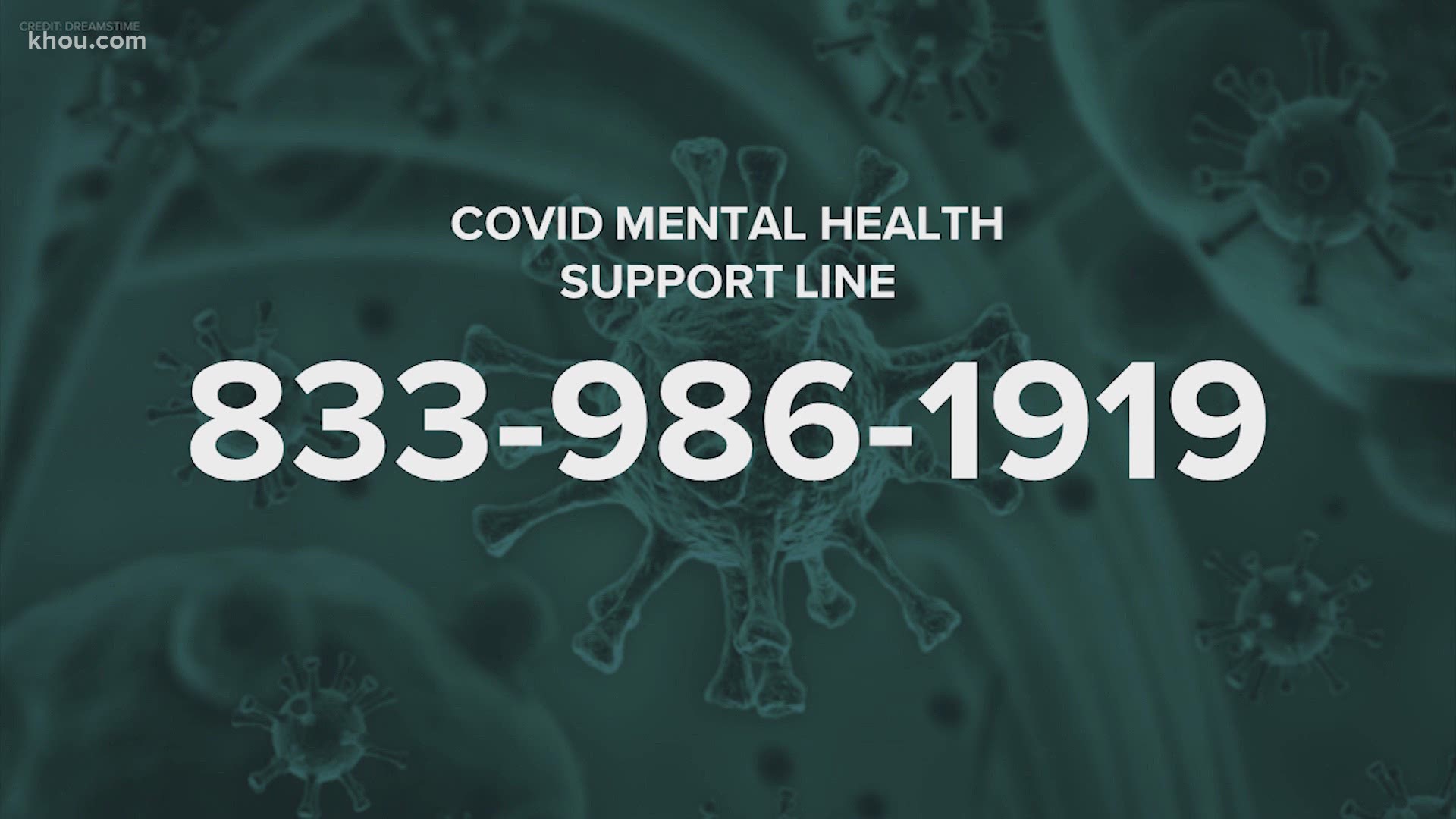HOUSTON — In the last two months, we’ve all adjusted to the changes the fight to stop the spread of coronavirus has had on our everyday lives.
For some, though, the direct and indirect consequences of the pandemic have taken an even harder toll on their mental health.
The ripple effects COVID-19 has had on society are unmatched.
Bill Prasad, KHOU’s mental health and wellness expert said, “This is an unrivaled challenge to a person’s psychological stability. We have never seen anything like this before.”
Prasad said the fear of getting sick, record unemployment, an economic shutdown and months of social separation have contributed to a spike in mental health issues.
He said even people who are mentally steady are struggling.
According to the latest COVID Impact study, about 6 in 10 Americans have felt anxiety, depression, loneliness or helplessness in the past seven days.
Prasad said that’s causing a spike in suicides.
“People feel disconnected from others and if they were already having some psychiatric difficulties this could drive them closer to either suicidal ideation or actually taking their own lives,” he said.
In Harris County, Prasad said the state’s COVID Mental Health Support line has received more than 3,000 calls since March.
He said locally they’re not seeing a spike in calls to the crisis hotline because people are seeking help before reaching that point.
Prasad said because the future is unknown it’s OK to feel down at times but it’s also important to focus on things you can control.
“You do control what you put in your mouth and that you can follow a nutritious diet,” Prasad said. “You do control whether you do some exercise in the home or whether you run outside. You do control whether you use your phone to make contact with loved ones.”
Prasad said it’s about getting back into a routine when everything else feels out of place.
If you or someone you know needs help, the National Suicide Prevention Lifeline is 1.800.273.TALK(8255).

